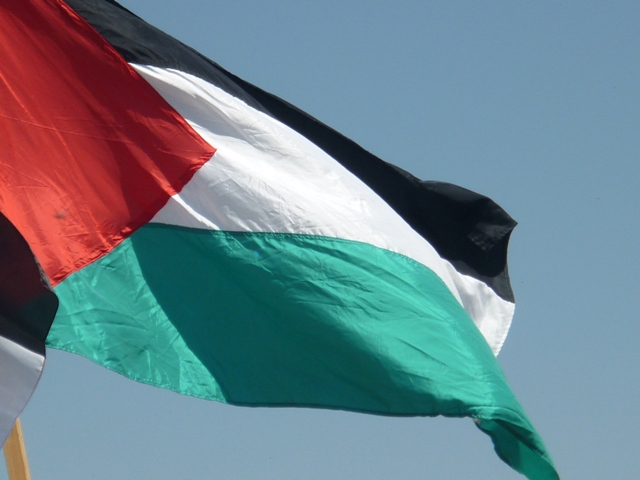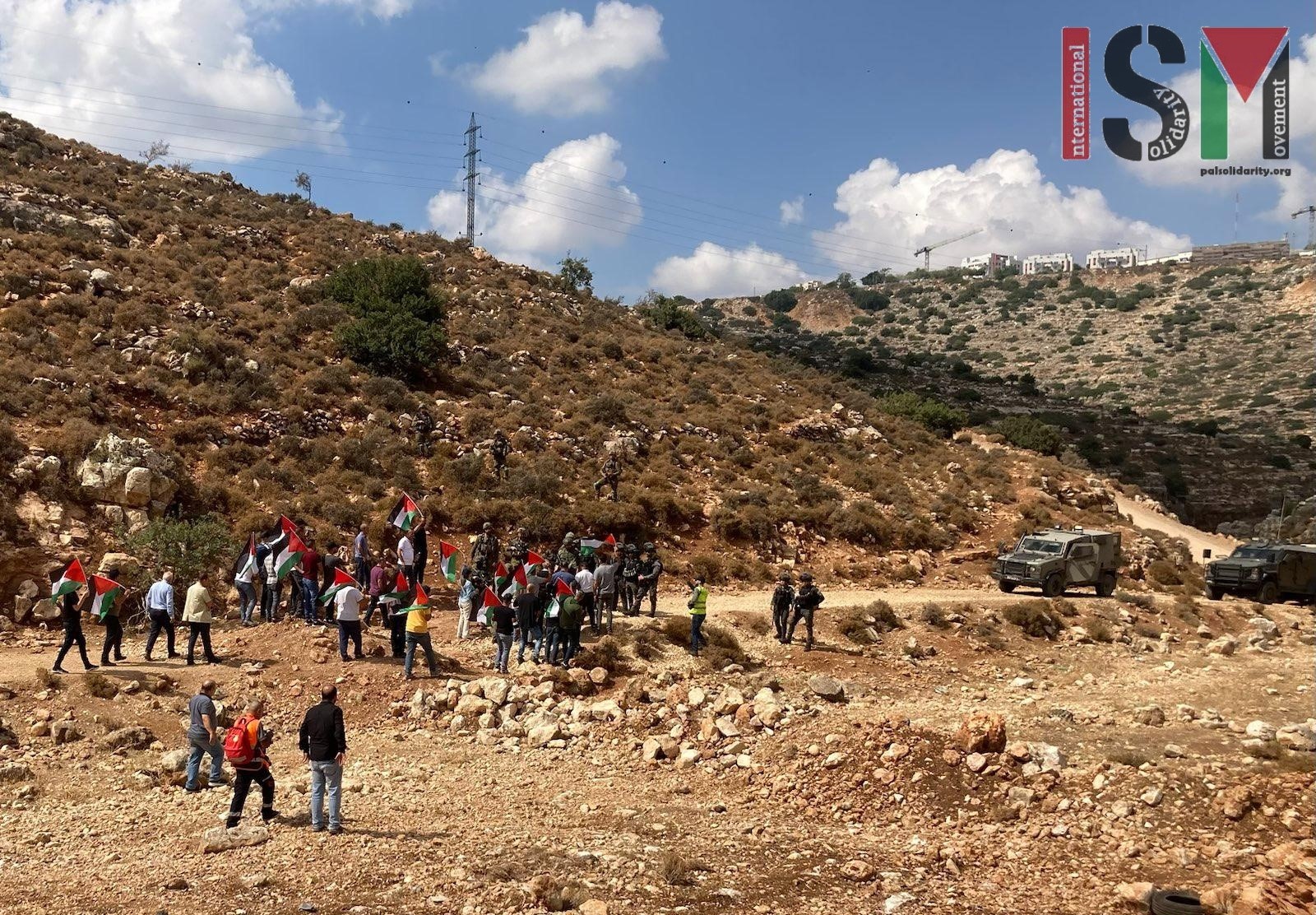Tag: Friday Demonstrations
-
Statement issued by Beita municipality regarding the martyrdom of the foreign solidarity activist on Mount Sabih
The Beita Municipality condemns in the strongest terms the crime of execution committed by the occupation forces against the American solidarity activist of Turkish origin, Ayşenur Ezgi Eygi, by firing live bullets at her and hitting her directly in the head, where she fell on the land of our town of Beita, to be her…
-
Resisting Colonization in Beita
24 July 2024 | International Solidarity Movement | Beita Residents of Beita, south of Nablus, have restarted the weekly Friday demonstrations to resist the further theft of their land. In June, the Israeli security cabinet greenlighted the “legalization” of Evyatar, an outpost established on Sabih Mountain, situated on the outskirts of the town. Beita residents…
-
Weekly demonstration in Der Istya – 6th October
On Fridays 6th, people in Deir Istya protested against a new outpost that was built three months ago close to the village. After the prayer almost 70 protesters, among them members of the local Popular Resistance Committee, residents from the surrounding villages, ISM internationals and Israeli activists went down from the hill and, waving their…



